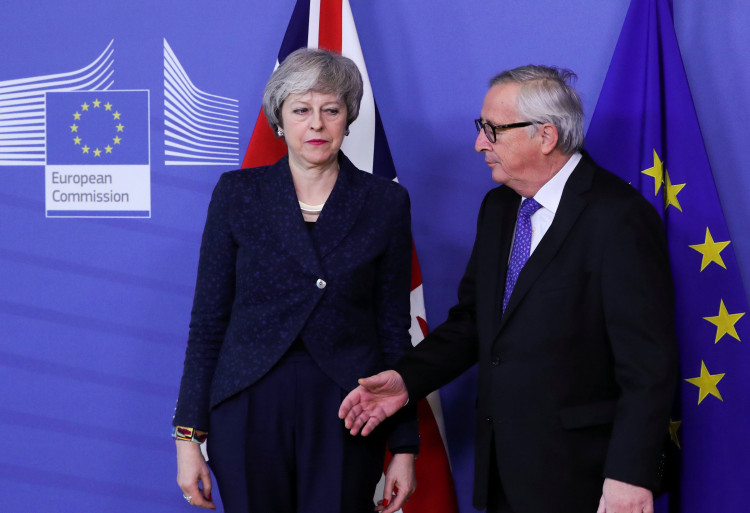Prime Minister Theresa May left Brussels with a message from the European Commission that ignited hopes for a Brexit deal that avoids future troubles at the Irish border.
According to BBC News, the European Union agreed to "more talks," potentially opening doors for further discussions on the Irish border recommendations that May laid on the table.
Analysts believe that this development could be a positive point to look at despite fears about a potential no-deal Brexit and problems that could arise from the Irish backstop.
Over the past weeks, May's government has been discussing potential strategies that could settle issues raised regarding the Irish border. However, Brexit is less than two months away and some economists are concerned about how trade exchanges will fair if Britain leaves the EU without a deal.
A recent Sky Data poll rolled out to Irish citizens revealed that most people in the Republic of Ireland agree that the government should maintain a Brexit backstop. The poll found out that 8 out of 10 among the Irish people believe that their government should hold out on the backstop even if it means Britain exits without a deal.
To make things even gloomier for a settlement on the highly-contested Brexit backstop, the poll found out that only 7 percent of the surveyed citizens think the Irish government should surrender to a compromise.
If the insurance policy (Irish border backstop) that makes it difficult for the Commission and May to agree on a final deal does not end up in a softer compromise for the U.K. and Ireland, trade exchanges could be hampered, analysts noted.
May's previous recommendations were rejected by a historical margin earlier in January. Since then, there have been mixed comments from politicians and British citizens alike. With the EU's agreement to proceed with further negotiations, hopes for a sure deal have been reignited.
While the Commission did not end discussions during May's Brussels visit, there are still challenges that the U.K. has to overcome before the country exits the union on March 29. One of these is to make a decision on whether or not Britain will compromise with the Labour party.
Meanwhile, a Brexit debate is scheduled for February 14 in the House of Commons. According to The Guardian, the debate will most likely hold discussions about possibilities for further amendments on May's proposed deal.
On February 28, May and EU Commission President, Jean-Claude Juncker will hold a meeting to determine if a revamped Brexit deal will pass the commission's standards, that is if May is able to come up with a proposal that the House of Commons will agree to.





